‘The magic of story’: The Unforgotten Coat in Germany
The Unforgotten Coat has been on quite a journey since its publication in 2011 for The Reader's Our Read campaign. It's been shared in schools and universities, at festivals and events and has garnered several award wins and nominations. We've been amazed at how the story - inspired by true events - has become a global sensation, but not all that surprised given that it was penned by the brilliant Frank Cottrell Boyce.
Recently, Frank embarked on a trip which highlighted not only the appeal of the book but also its relevance to current events that are happening across the world. He writes for us:
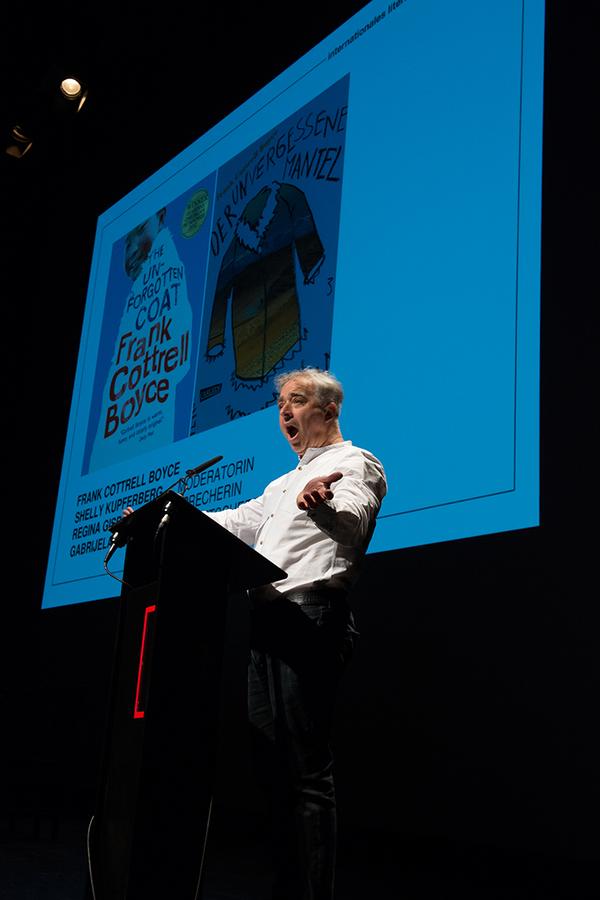
Frank Cottrell Boyce making the children's keynote lecture at the Berlin International Literature Festival
A few months ago I won a prestigious book award in Germany - the James Kruss prize. This involved me in the difficult work of being wined and dined and feted in one of the world’s most beautiful libraries - the International Children’s Library in Schloss Blutenburg near Munich. I wrote about the experience here. It also involved me giving the children’s keynote lecture at the Berlin International Literature Festival last week.
I find it surprising and thought-provoking that all this prestige comes from the book I wrote for The Reader in response to the badgering of Jane Davis - The Unforgotten Coat. This is a book I wrote quickly, inspired by a Mongolian girl I met in a school in Bootle. It’s illustrated with photographs taken by friends Carl Hunter and Clare Heaney. It could not be more home-made. Yet it seems really to have hit a chord in Germany.
The events were all packed. I was taken to schools and to a refugee project where the kids were doing work inspired by the book. A party of Mongolian children turned up, delighted by the fact that the book’s heroes are from Mongolia. It’s always been well-regarded in Germany (it won the state-sponsored Jugendliteraturpreis last year) but the events of the summer, and the refugee crisis in particular, have made it seem relevant and timely. I was even invited onto the news to discuss the crisis, which turned out to be slightly embarrassing as I only remembered that I don’t really speak German when I was on already on air.
There’s something to be said here about the magic - or the grace - of story. When the book was written there was no refugee crisis. I wrote it purely because its two swaggering, resourceful, vulnerable heroes seemed fun and real. When politicians are referring to refugees as “swarms” and “floods” as though they were the plagues of Egypt, it’s important to be reminded that we are talking about individuals - as needy, as worthy, as eccentric as we are ourselves. Narrative is a great mental and moral discipline.
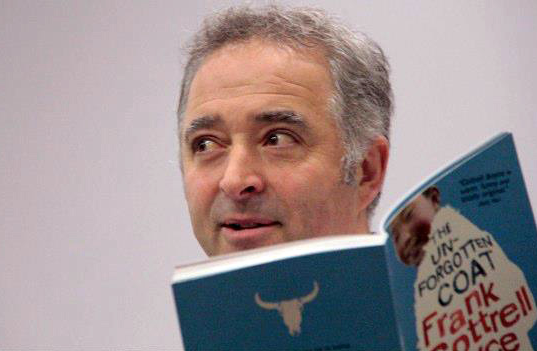 It also says something about the inherent internationalism of children’s stories. When I was growing up I was immersed in stories that came from Finland, Africa, the Middle East - but they all seemed to belong to me, part of my inheritance every bit as much as Scouse or the Beatles. By the way, The International Children’s Library was founded by Jella Lepman - a Jewish refugee who got out of Germany just in time and then, when the war was over, went back to help rebuild it. Imagine that. She got away. She got a nice job at the BBC. Then she went back. The more I think about it, the more I think that’s one of the most moving and salutary things I’ve ever heard. She went back because she thought that children’s stories were important. I put her picture over my desk and say a prayer each morning that I don’t sell her vision short.
It also says something about the inherent internationalism of children’s stories. When I was growing up I was immersed in stories that came from Finland, Africa, the Middle East - but they all seemed to belong to me, part of my inheritance every bit as much as Scouse or the Beatles. By the way, The International Children’s Library was founded by Jella Lepman - a Jewish refugee who got out of Germany just in time and then, when the war was over, went back to help rebuild it. Imagine that. She got away. She got a nice job at the BBC. Then she went back. The more I think about it, the more I think that’s one of the most moving and salutary things I’ve ever heard. She went back because she thought that children’s stories were important. I put her picture over my desk and say a prayer each morning that I don’t sell her vision short.
I went home via Hamburg where I took my little son to see “Miniatur Wunderland” - a terrific display of model towns and villages. One room contains a series of scenes of one street through time. From the Bronze Age, through the Middle Ages, the Enlightenment, the Nazis (“in the far corner we can see Rosa Luxembourg being murdered …”), the Berlin Wall and the collapse of the Wall and then… it doesn’t stop. The next few cases show visions of what the same street might be in the future. Each of those cases has been put together by one of the main political parties. They were each asked to show what their vision of the future would look like at street level. It was revelatory and oddly moving to see that politicians dream too.
This is a picture of the Miniatur Wunderland version of the collapse of the Wall.
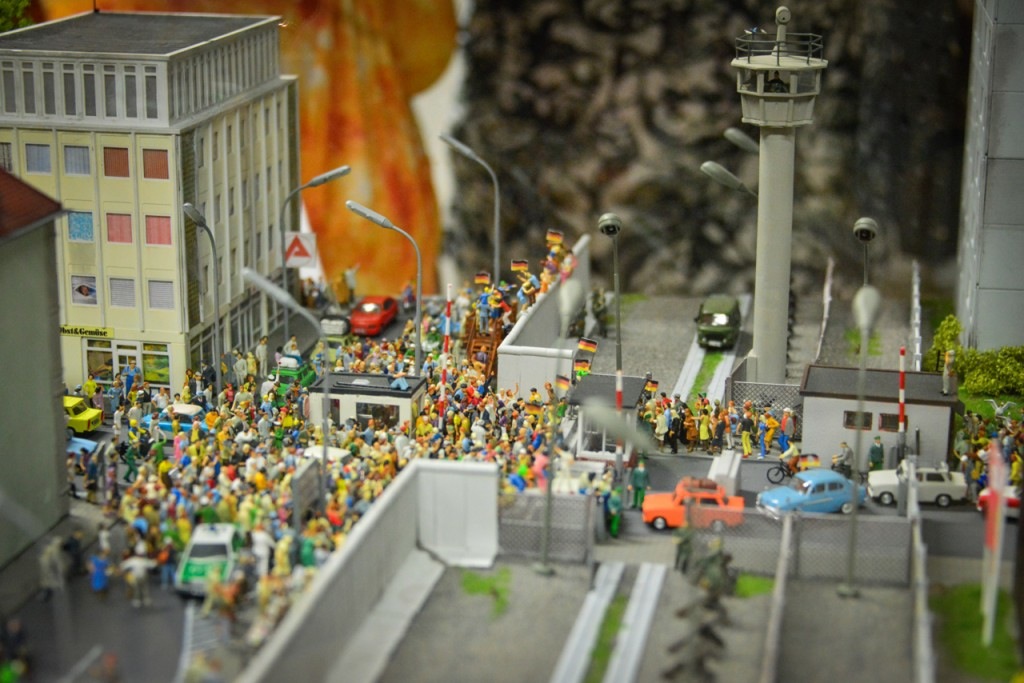
The Unforgotten Coat received its international premiere at the Berlin International Literature Festival on 9th September at the Children and Young Adult Literature section of the festival, with a special focus on 'Escape, displacement and migration'.
"Good stories help us make sense of the world. They invite us to discover what it’s like being someone completely different." - Author Gillian Cross writes for The Guardian on how fiction can help us to understand the Syrian refugee crisis. The Unforgotten Coat has been offered as one recommendation (and we agree), but there are many more, suggested by readers here.
An exhibition of original digital and Polaroid-style photographs from The Unforgotten Coat by Carl Hunter and Clare Heaney is on display at Bank Street Arts in Sheffield until Saturday 26th September.
Share
Related Articles

April’s Monthly Stories and Poems
The clocks have not long changed to herald the longer hours of daylight, making us consider the passage of time…
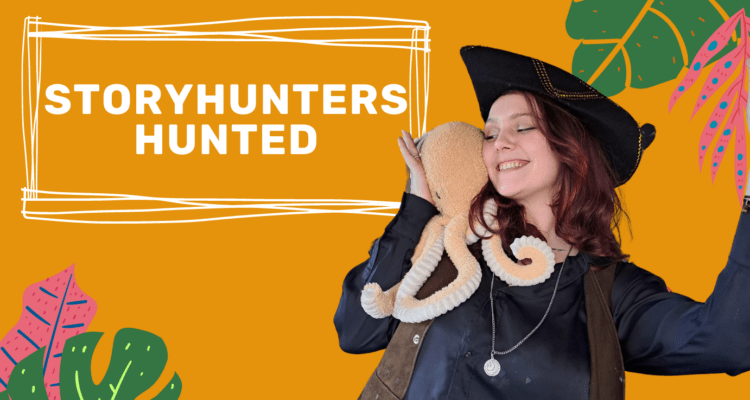
Storyhunters Hunted: Jelly Belly
We're making it our mission to track down all of our wonderful Storyhunters and find out a little more about…
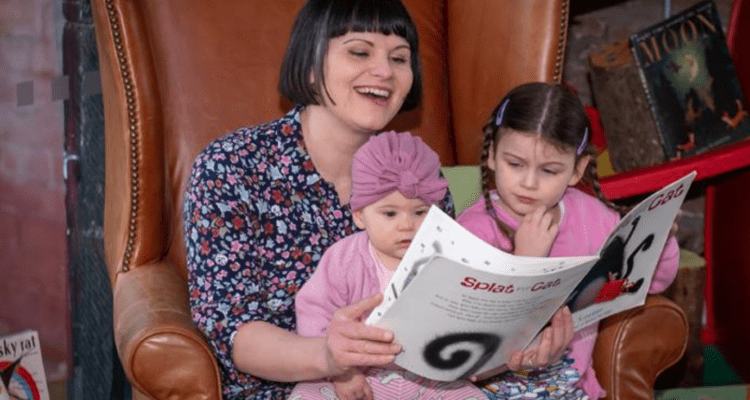
Reader Revisited: Reading with Looked-After Children by Grace Frame
We're taking a trip down memory lane and revisiting articles from The Reader Magazine. This article first appeared in issue…


